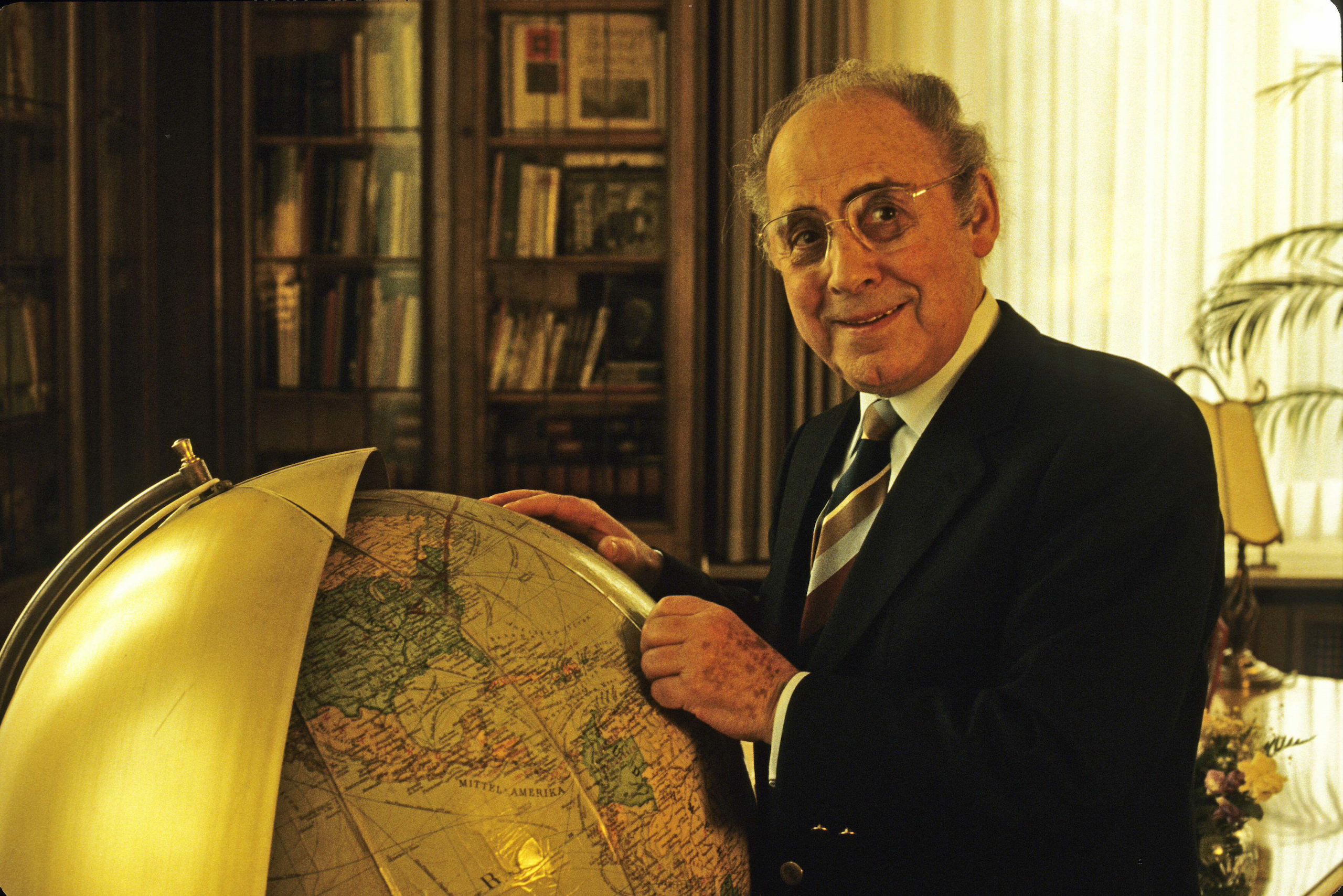
Photo: Wolfgang Steche - Hamburg/DGPH
The Founder: Kurt A. Körber
Kurt A. Körber (1909 to 1992) was a successful industrialist – and passed on his entrepreneurial zeal to shape society. As an instigator, he became a role model for social responsibility put into practice. With his unerring instinct for the urgent issues of the day and his hands-on actions, he convinced decision-makers both in Germany and abroad, as well as all those who are committed to change on the ground.
Early years and university studies
Kurt A. Körber was born in Berlin on 7 September 1909. He attended primary school in Berlin until 1923, after which the family moved to Chemnitz where he was educated in the secondary school and commercial college. He developed an early interest in broadcasting technology. His first invention at the age of fifteen was an automatically controlled transmitter read-out scale, which he successfully patented in Berlin. Following an apprenticeship as an electrician with the Allgemeine Maschinenbau-Gesellschaft (General Mechanical Engineering Company) in Chemnitz and an Electrical Engineering degree at Mittweida University, Körber went on to file more than 200 other patents during his lifetime.
The War Years
In 1935, Körber joins the Universelle-Werke J. C. Müller & Co. in Dresden, which, as a company important to the war effort, also begins producing armaments. Up to 3,000 foreign and forced laborers were used for this purpose. In retrospect, Körber’s behavior at the time appears contradictory: He is actively involved in the company’s armaments production and becomes a member of the NSDAP (the Nazi Party) in 1940. At the same time, he protects the company’s persecuted employees. The Institute of Contemporary History has intensively studied the characteristics and motives of Körber’s opportunistic attitude under National Socialism.
By 1944, Körber had risen to the post of Technical Director of the Universelle Company. In 1945 he remained in that position under the Soviet occupying power and pressed ahead with the company’s civilian reconstruction.
A fresh start in Hamburg
In July 1946, Kurt A. Körber began repairing cigarette machines and manufacturing hand-operated tobacco cutters in Hamburg. The eastern part of the Hanseatic city had remained intact, and so had Hamburg-Bergedorf, which was where he rented his first premises and founded the company Hauni Maschinenfabrik Körber & Co KG. Thanks to support by local politicians, Körber was able to expand his company on the Kampchaussee (today Kurt-A.-Körber-Chaussee) from 1952 onwards.
A global group is born
Today, Körber Group is an international technology group with more than 12,000 employees and more than 100 locations worldwide. Körber AG is the holding company of the Körber Group which is active in the Business Areas Digital, Pharma, Supply Chain, and Technologies. The Körber Group generated sales of EUR 2.5 billion in fiscal year 2022.
Entrepreneur and founder/benefactor
Körber created the foundation to Rebuild the Thalia Theatre in Hamburg in 1957, then in 1959 he formed the Kurt-A.-Körber Foundation with the aim of establishing a Technical Academy to train management staff for practice-oriented industries. The Hauni Foundation came into existence in 1969, and the two foundations were combined in 1981 to form Körber-Stiftung. Körber provided more than DEM 200 million between 1959 and 1992 for the advancement of culture and science.
Commitment and honours
Körber struck a balance at an early stage between entrepreneurial gain and investments for the common good. He once described the founding of the Bergedorf Round Table in 1961 as his most important invention. This gathering initially took place in Bergedorf Castle, and discussed questions relating to the free industrial society. Körber’s first honour was the award of an Honorary Doctorate rer. pol. by Friedrich-Alexander University, Erlangen, in 1960. This was followed in 1965 by the Diesel Medal in Gold from the German Inventors’ Association. He received the Association of German Foundations’ Medal for Merits in the German Philanthropic Sector from German Federal President Karl Carstens in 1983. Körber’s later honours turned the wheel full circle and back to his beginnings: he became an Honorary Doctor of the Technical University of Dresden in 1989, and Hamburg’s Mayor Henning Voscherau conferred the Honorary Citizenship of the City on him in 1991. Kurt A. Körber died in Hamburg on 10 August 1992.
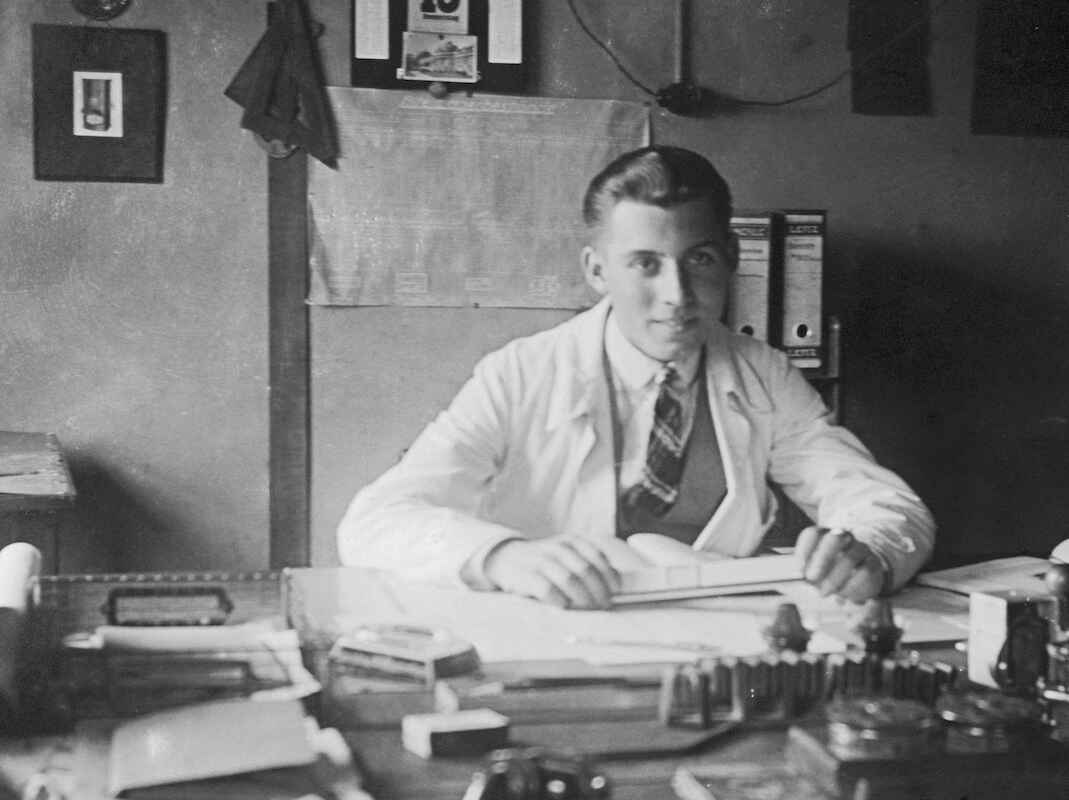
Kurt A. Körber: From technician to entrepreneur Photo: Körber Archiv/FK 16/1 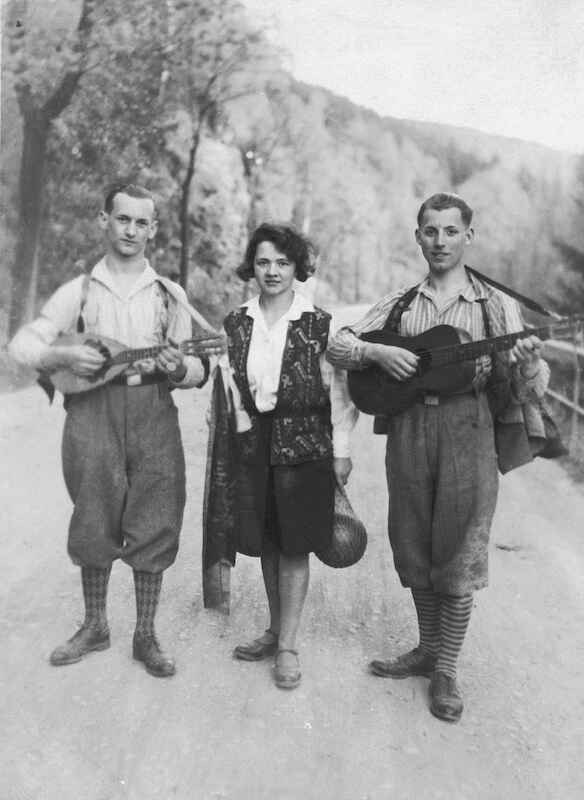
Hiking and camping in the Ore Mountains 1927 Photo: Körber Archiv/FK 54/9 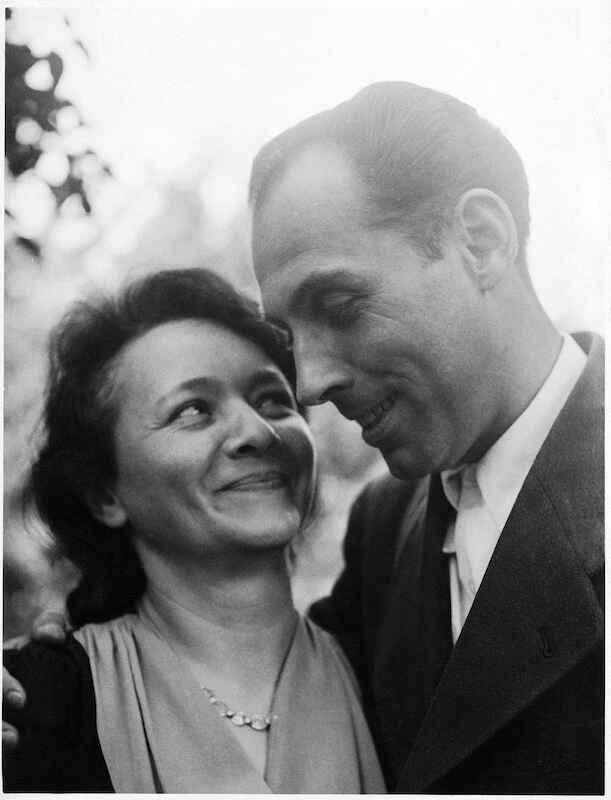
Körber and his wife during the war in Chemnitz Photo: Körber Archiv/FK 14/85 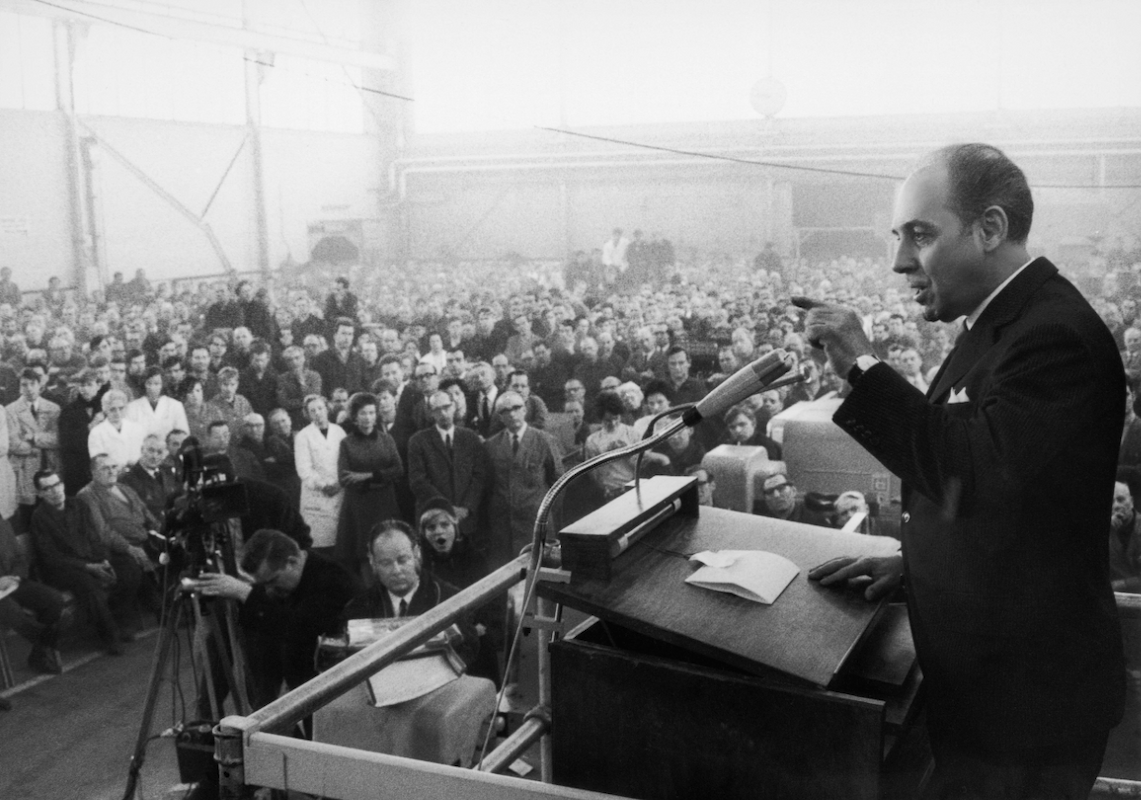
Staff meeting Photo: Hauni Fotoarchiv 4711/2095 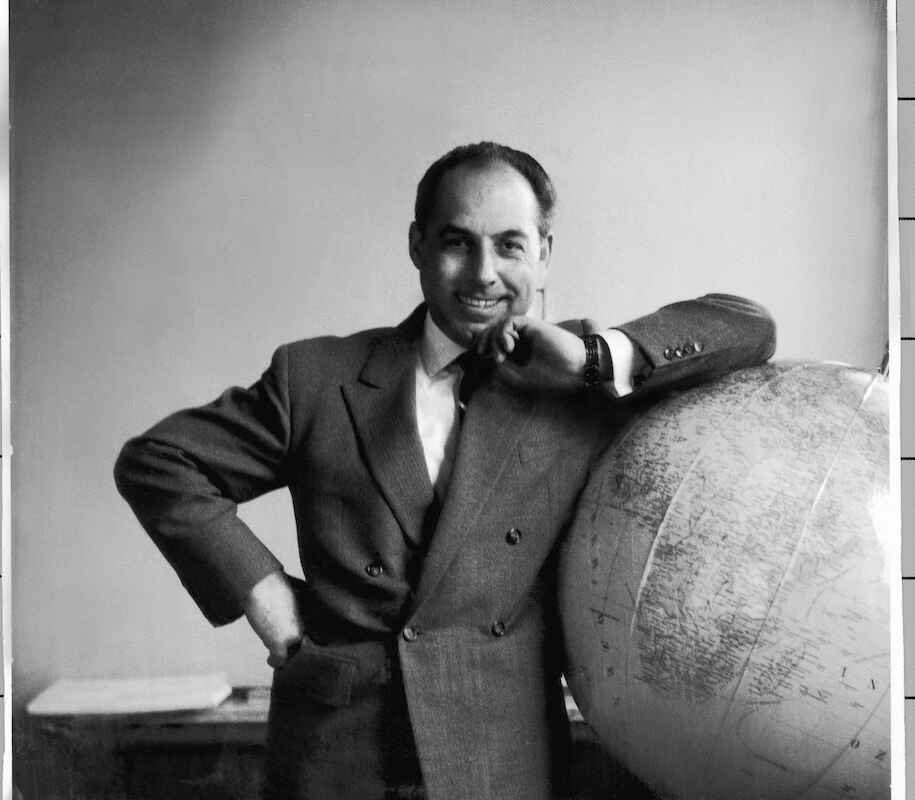
Kurt A. Körber Photo: Körber Archiv 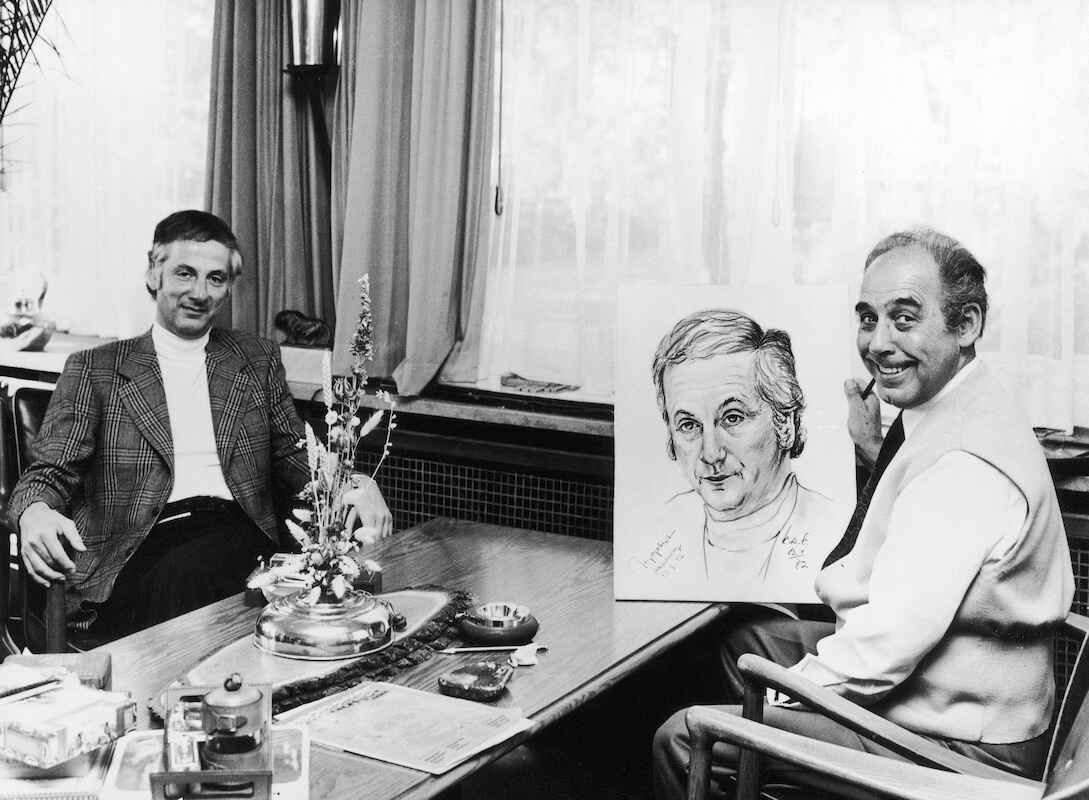
Portrait studies brought Körber much recognition. Here with Thalia theater director Boy Gobert. Photo: Hauni Fotoarchiv 4711/2395 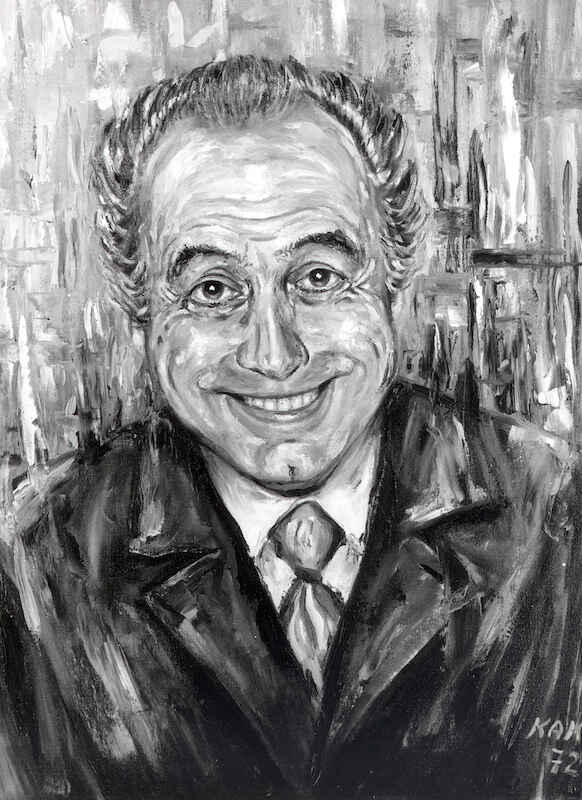
Self portrait 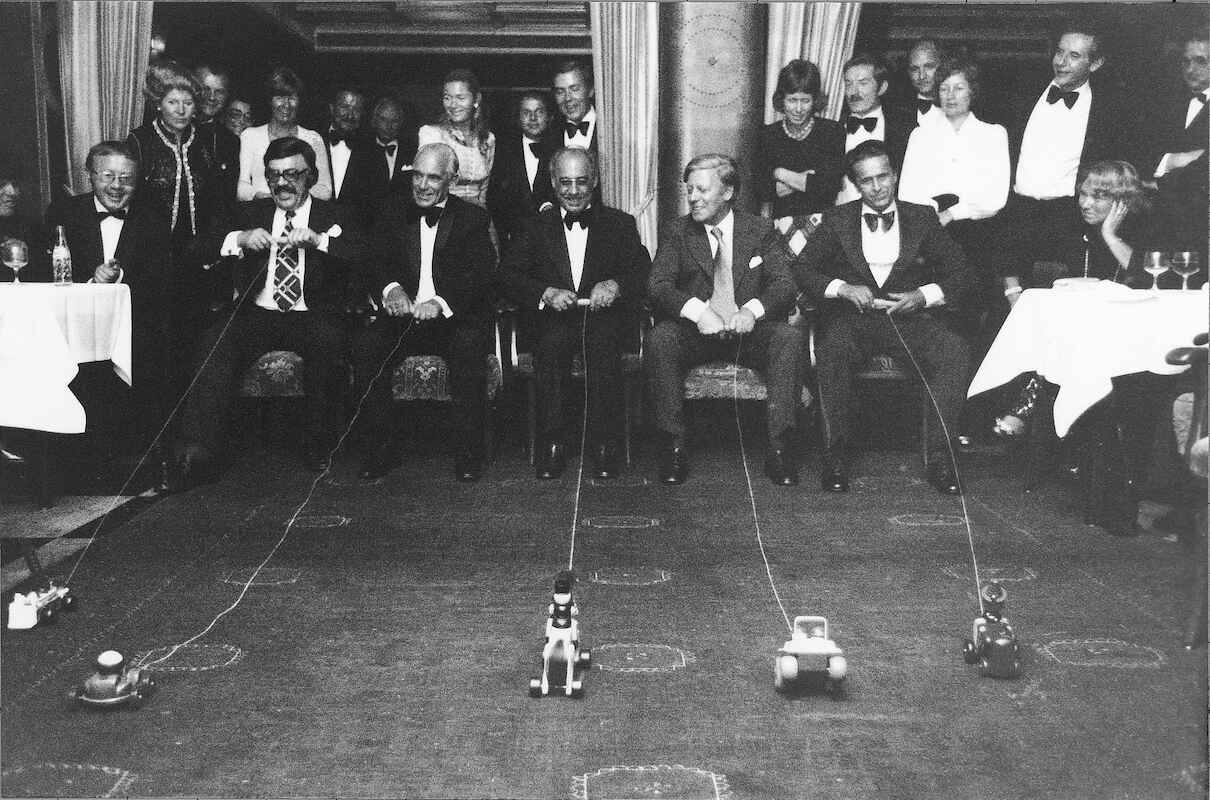
Parlor games were part of Körber's notorious parties. Photo: Körber-Archiv 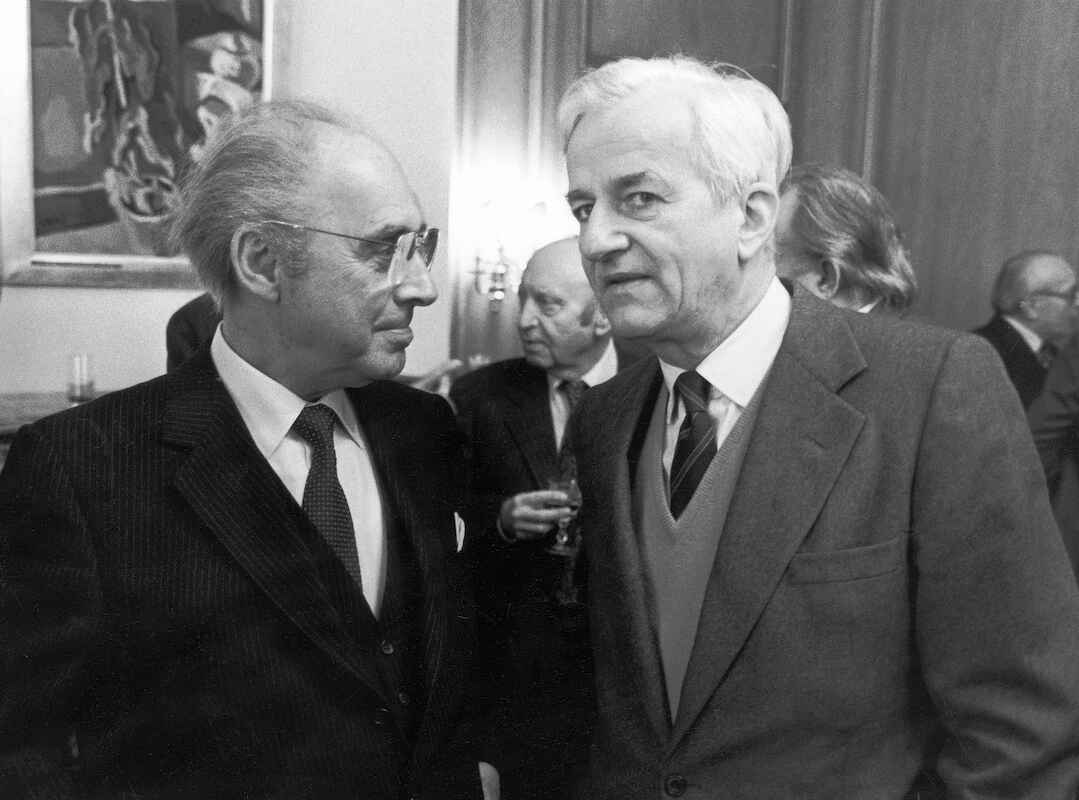
The international discussion groups provided Körber with an opportunity to talk at the highest level. Photo: Klaus Lehnartz, Berlin 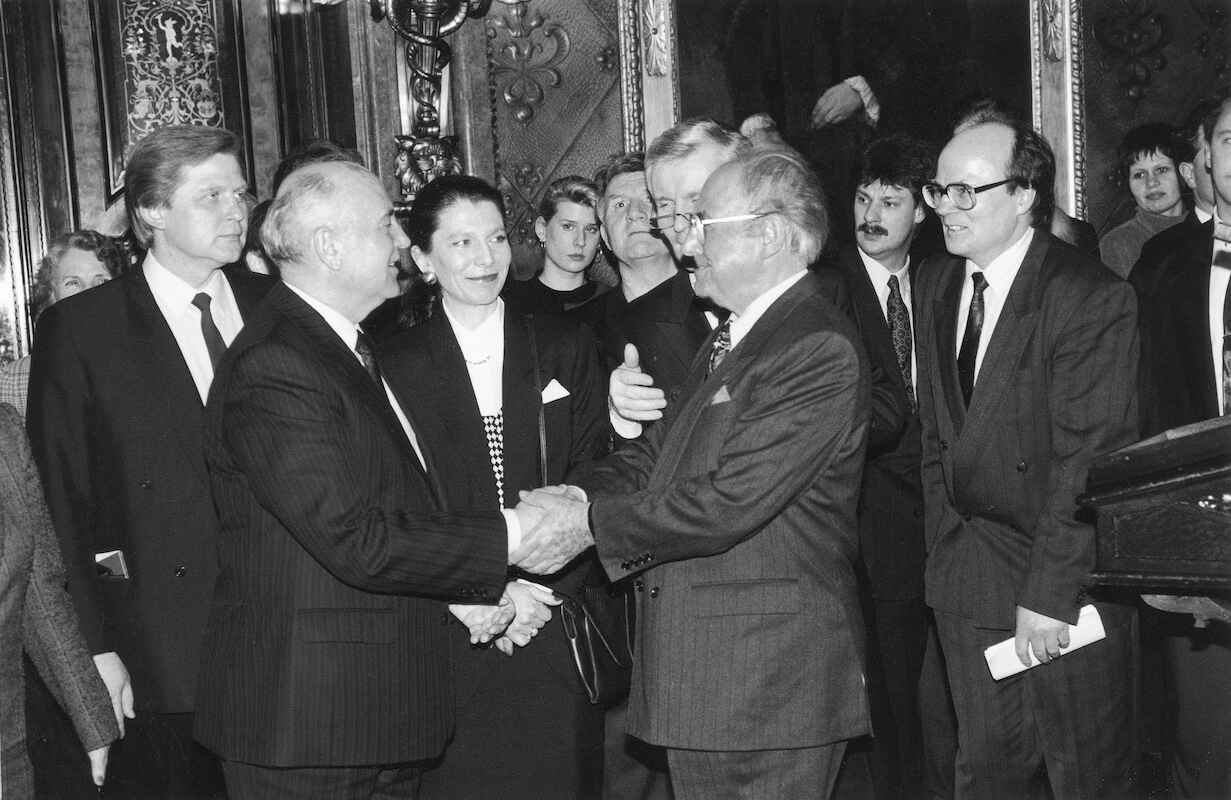
Körber in conversation with Mikhail Gorbachev Photo: Michael Zapf, Hamburg 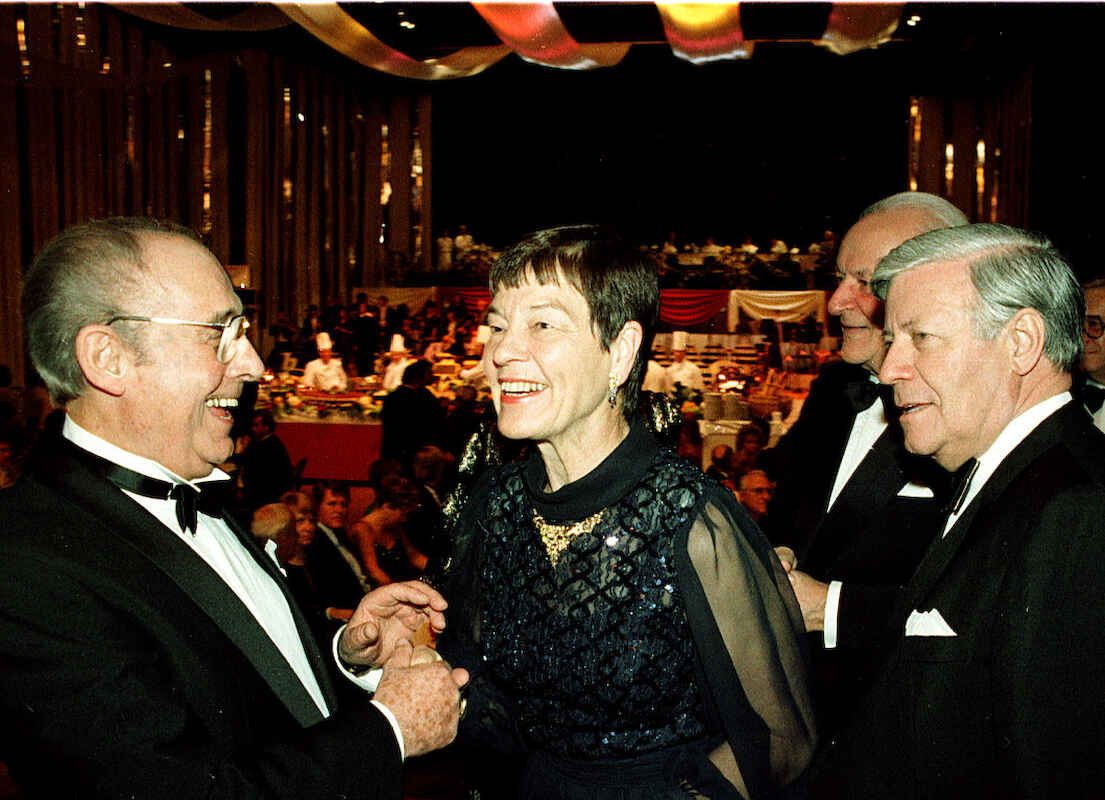
Opera Ball with Loki and Helmut Schmidt and the Intendant Rolf Liebermann Photo: Hauni-Fotoarchiv/Finck 4711/2990 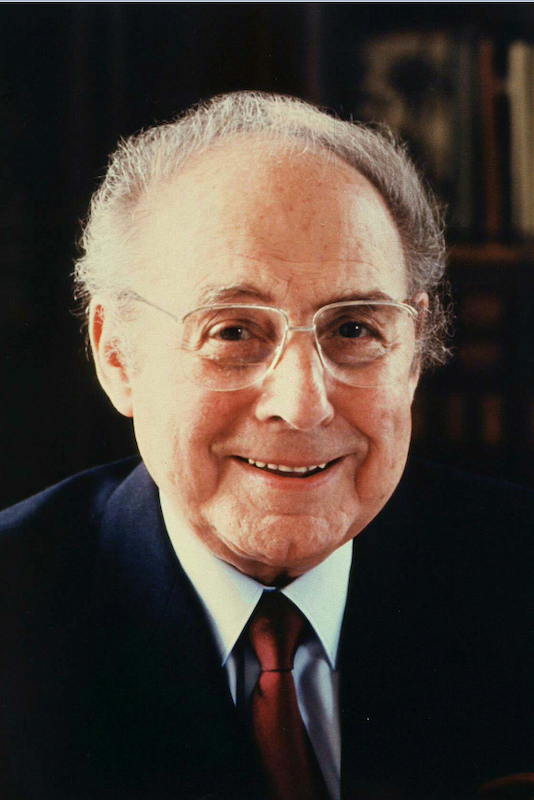
Kurt A. Körber
Portrait
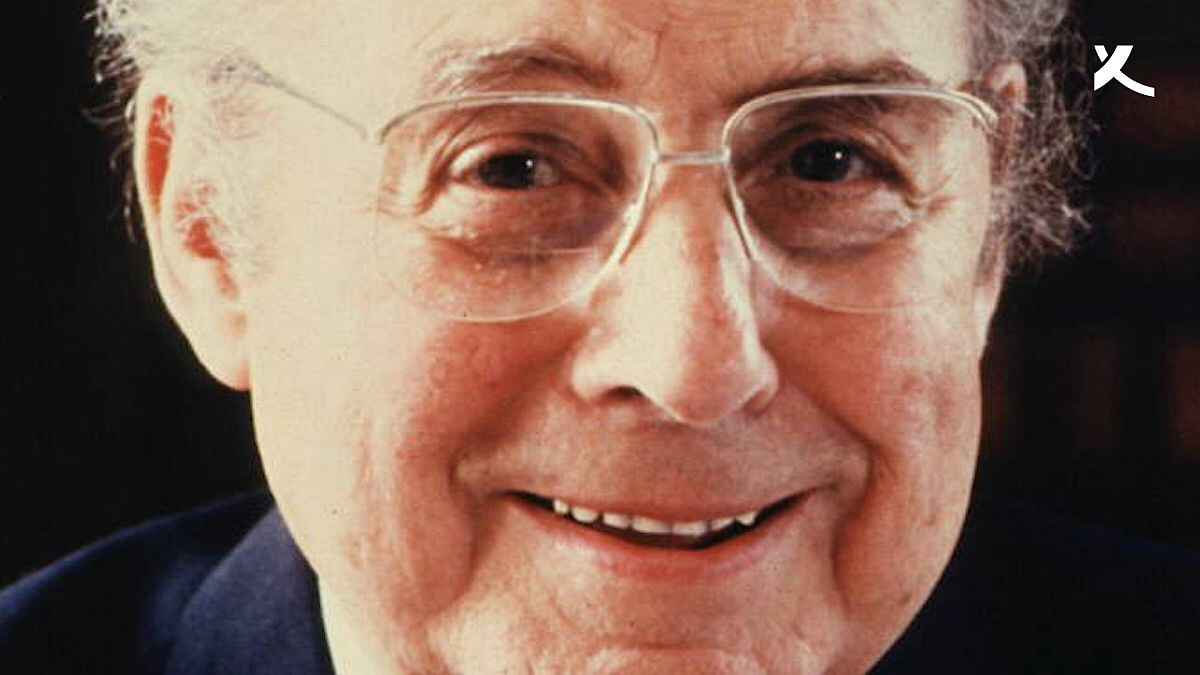
Load external video from YouTube.
Find out more in our privacy policy.
Brochure
Der Anstifter. Was Kurt A. Körber bewegte (German)
Further publications (German)
Josef Schmid/Dirk Wegner:
Kurt A. Körber - Annäherungen an einen Stifter
edition Körber-Stiftung, 2002
Hier in drei Teilen zum Download:
Vom Techniker zum Unternehmer (PDF)
Als Kapitalist für das Gemeinwohl (PDF)
Das Engagement des Stifters (PDF)
Hermann Schreiber:
Kapitalist mit Gemeinsinn. Ein Essay über Kurt A. Körber
edition Körber-Stiftung, 2009
Josef Schmid/Frank Bajohr:
Gewöhnlicher unternehmerischer Opportunismus?
Kurt A. Körber und die Dresdner »Universelle« im Nationalsozialismus
Zeitgeschichte in Hamburg, 2011
For indicated footnotes, e.g. [6], please refer to the PDF document.
Gewöhnlicher unternehmerischer Opportunismus?
Kurt A. Körber und die Dresdner „Universelle“ im Nationalsozialismus
Josef Schmid / Frank Bajohr
Hamburg verfügt über eine lange Tradition bürgerschaftlichen Engagements, das sich u. a. in einer vielfältigen Kultur des Stiftens und des Mäzenatentums manifestiert. Viele dieser Stiftungen trugen traditionell einen „mildtätigen“ Charakter und dienten sozialen Unterstützungszwecken. Fragt man nach bedeutenden Stiftern, die sich in den Jahrzehnten nach 1945 durch ein besonderes gesellschaftspolitisches Engagement ausgezeichnet haben, dann geraten vor allem drei Personen ins Blickfeld: Alfred C. Toepfer (1894 – 1993), Gerd Bucerius (1906 – 1995) und Kurt A. Körber (1909 – 1992). Alle drei wurden mit der Hamburger Ehrenbürgerwürde ausgezeichnet. Alle drei haben die NS-Herrschaft in Deutschland als Erwachsene und schon damals als in verantwortlicher Funktion Handelnde erlebt. Und alle haben sich nach dem Krieg gesellschaftspolitisch engagiert. Die Wurzeln dieses Interesses von Toepfer, Bucerius und Körber lassen sich freilich nicht auf einen gemeinsamen Nenner bringen, zumal ihre politischen Orientierungen und ihre Lebenswege deutliche Unterschiede aufwiesen.
Alfred Toepfer und seine 1931 gegründete „Stiftung F.V.S. zu Hamburg“ (heute „Alfred Toepfer Stiftung F.V.S.“) gerieten wegen ihres Verhaltens und ihrer Aktivitäten im Nationalsozialismus besonders in den 1990er Jahren in die Kritik. Toepfer habe eine zu große Nähe zu NS-Repräsentanten gepflegt und mit seiner Stiftung „pangermanische Ziele“ verfolgt.[1] Die Stiftung begegnete dieser Kritik seit Mitte der 1990er Jahre mit einem offenen Umgang mit der eigenen Geschichte und einer kritischen Biographie ihres Gründers.[2] Das Verhalten Gerd Bucerius’ im „Dritten Reich“, der damals als Jurist gearbeitet und dabei auch jüdische Mandanten engagiert verteidigt hatte, blieb dagegen nahezu unumstritten.[3]
Auch Kurt A. Körber erfuhr zu Lebzeiten kaum Kritik wegen seiner Tätigkeit in der Kriegswirtschaft im „Dritten Reich“. Er hatte nach der Machtübernahme der Nationalsozialisten 1933 seine vier Jahre zuvor bei der Berliner Siemens & Halske AG begonnene berufliche Laufbahn als Ingenieur erfolgreich fortgesetzt. Als 25-Jähriger wechselte er 1935 zur „’Universelle’ Zigarettenmaschinenfabrik J.C. Müller & Co.“ in Dresden, der er bis 1947 angehörte. Dort stieg er zum Technischen Direktor auf und legte die Basis für seine weitere Karriere. Im Zweiten Weltkrieg wandelte sich die „Universelle“ zu einem Betrieb, in der die Rüstungsproduktion immer deutlicher dominierte, was Körber nach eigener Aussage aktiv mit vorantrieb.[4] Die „Universelle“ profitierte ökonomisch sehr von dieser Umorientierung hin zu einem Rüstungsbetrieb und setzte dabei zunehmend Fremd- und Zwangsarbeiter ein.
Körber machte später aus seiner Tätigkeit in der nationalsozialistischen Kriegswirtschaft kein Geheimnis, betonte aber stets seinen persönlichen Einsatz für einzelne vom NS-Regime verfolgte Kollegen.[5] Sie vor dem Fronteinsatz zu bewahren, führte er als ein zentrales Motiv für sein aktives und erfolgreiches Engagement in der NS-Kriegsproduktion an. Er verschwieg dabei auch politische Zugeständnisse wie seine NSDAP-Mitgliedschaft nicht, „reduzierte“ sie aber nach Kriegsende zunächst auf eine einjährige Dauer, wenig später auf eine bloße „Anwartschaft“. Bei letzterer Version blieb er bis zu seinem Lebensende.[6]
Mit der von ihm 1946/47 ins Leben gerufenen Firma Hauni Werke Körber & Co. KG als Gründungsbetrieb der heutigen, in mehreren ökonomischen Bereichen agierenden Körber AG stieg Körber zu einem international erfolgreichen Unternehmer auf. Durch betriebliche und private Sozialmaßnahmen und die Einführung unkonventioneller Mitbestimmungsverfahren im Unternehmen erregte er in den 1960er und 1970er Jahren wiederholt überregionale Aufmerksamkeit und fand – ungeachtet der kontroversen Beurteilung einzelner Initiativen – insgesamt große Anerkennung. Parallel initiierte er zahlreiche Stiftungsaktivitäten, die die Ehrenbürgerwürde und viele weitere Auszeichnungen begründeten.
Zudem erwarb Körber sich nach 1945 mit mehreren Initiativen den Ruf eines für kritische Geschichtsaufarbeitung und Völkerverständigung eintretenden Unternehmers. So trug beispielsweise der „Geschichtswettbewerb des Bundespräsidenten“ – zunächst unter dem Titel „Schülerwettbewerb Deutsche Geschichte um den Preis des Bundespräsidenten“ – durch seine 1980 bis 1983 durchgeführten Wettbewerbe zum „Alltag im Nationalsozialismus“ erheblich zur Popularisierung einer „Geschichte von unten“ und der Oral History in der Geschichtswissenschaft bei. Der „Bergedorfer Gesprächskreis“ wirkte als Forum für internationalen Austausch und Verständigung vor allem durch eine über Jahrzehnte verfolgte Politik des Dialogs und der Aussöhnung mit den ehemaligen Kriegsgegnern im Osten, allen voran mit der Sowjetunion.[7] Körber konzentrierte seine stifterischen Aktivitäten 1981 in der „Körber-Stiftung“, die seit seinem Tod die kultur- und völkerverbindenden Leitgedanken ihres Gründers auch durch zahlreiche neue Initiativen weiter verfolgt.
Kritik am Verhalten seines Berufszweiges im Nationalsozialismus keimte erstmals durch die bahnbrechende Studie von Karl-Heinz Ludwig über „Technik und Ingenieure im Dritten Reich“ ab Mitte der 1970er Jahre auf.[8] Die inzwischen durch zahlreiche Studien bestätigte These Ludwigs von der „Selbstmobilisierung“ von Wissenschaftlern, Technikern und Ingenieuren hatte Körber bereits zuvor grundsätzlich für seine Person bejaht, indem er sein damals aktives Engagement betonte, wenngleich aus angeblich edlen Motiven. Eine Position wie „Ich diente nur der Technik“,[9] die viele prominente Zeitgenossen einnahmen und die Mitte der 1990er Jahre heftig in die Kritik geriet, hatte er nicht für sich beansprucht, wenngleich er seine Technikbegeisterung deutlich zeigte und dieser Aspekt in Biographien seiner Person stets Eingang fand. Spätere Weggefährten mutmaßten deshalb zwar mitunter, Körber habe im Nationalsozialismus eine Art „innerer Emigration“ vollzogen, aber diese These erscheint wenig plausibel.[10]
Körbers Verhalten in der NS-Zeit wurde bis zu seinem Tod nicht mehr näher beleuchtet. Eine Rolle spielte dabei auch, dass die regionale NSGeschichte Sachsens erst seit den späten 1990er Jahren kritisch untersucht wird [11] und die Quellenlage sowohl zur „Universelle“ wie auch zur Person Körbers schwierig ist. Vom Unternehmen sind nur wenige Dokumente aus der Zeit vor 1945 überliefert, von den persönlichen Unterlagen Körbers – berufliche wie private – scheinen für die Zeit von 1933 bis Mai 1945 nur noch einige Zeugnisse und amtliche Dokumente wie Patentschriften zu existieren. Erst mit dem Kriegsende wird die Überlieferung dann wieder deutlich dichter.[12]
Zwar bemühte sich Ende der 1960er, Anfang der 1970er Jahre eine lokale „Kommission für Betriebsgeschichte“ um eine Rekonstruktion der „Universelle“- Historie, doch arbeitete die Kommission unter politischen Vorgaben durch die SED und zeitigte entsprechend fragwürdige Ergebnisse.[13] „Körber“ war dabei ohnehin kein Thema. Eine seriöse oder gar kritische Darstellung der „Universelle“-Geschichte, die die NS-Zeit miteinschließt, liegt bis heute nicht vor. Es gibt nur stichwortartige Chroniken, die überwiegend auf Zeitzeugenaussagen und auf Unterlagen basieren, die auf die Zeit vor 1933 fokussieren. Ebenso legen die Überlieferungen der staatlichen Instanzen der DDR nahe, dass Körber, der nach seiner endgültigen Übersiedlung nach Hamburg 1947 intensive Kontakte in die DDR und seit den 1960er Jahren in zahlreiche andere Staaten des damaligen Warschauer Vertrages unterhielt, nicht auf seine Dresdner Vorgeschichte hin untersucht wurde.[14]
Erst zwei in jüngerer Zeit von der Körber-Stiftung in Auftrag gegebene biographische Studien von Josef Schmid und Dirk Wegner sowie von Hermann Schreiber, die erstmals Überlieferungen in staatlichen und privaten Archiven sowie private Sammlungen einbezogen, widmeten sich diesem Lebensabschnitt intensiv und stießen dabei auf einzelne Mängel, Ungereimtheiten und fragwürdige Akzentuierungen in der bisherigen Darstellung Körbers im Nationalsozialismus.[15] Nicht nur die Tatsache, dass Körber bereits seit 1. Juli 1940 und nicht wie von ihm behauptet „ab 1944“ Mitglied der NSDAP gewesen war, rückten die Autoren erstmals ins Licht der Öffentlichkeit, sondern auch die Rolle der „Universelle“ in der NS-Kriegswirtschaft erhielt erste Konturen. Die Autoren dieser beiden Biographien attestieren Körber dennoch, dem Nationalsozialismus zumindest ideologisch fern gestanden zu haben. Vielmehr sei sein Drang, immer gewinnen zu wollen, bereits damals der eigentliche treibende Faktor seines Tuns gewesen. Hinzu käme ein unbestreitbares erfinderisches und unternehmerisches Talent, das Körber unbedingt zur Entfaltung bringen wollte. Körbers Handeln, so lässt sich diese Argumentation zusammenfassen, sei dabei in allen seinen Stationen kaum politisch-ideologisch motiviert, sondern vielmehr von einer gehörigen Portion Opportunismus geprägt gewesen.[16]
Doch gibt dieser Befund Anlass, die Rolle Körbers im Nationalsozialismus genauer zu betrachten. Denn die Frage, inwieweit Manager aktiv nationalsozialistisches Gedankengut vertreten haben, ist in der aktuellen Forschung zunehmend in den Hintergrund geraten: „Weniger die ohnehin schwer zu fassende ideologische Gesinnung steht seitdem im Mittelpunkt des Forschungsinteresses, sondern vielmehr das konkrete Handeln.“[17] Dies umso mehr, als der NS-Staat als eine „gelenkte Marktwirtschaft“ zwar das Wirtschaftsgeschehen indirekt steuerte, vor allem durch Gewinnanreize und die Zuteilung von Devisen und Ressourcen, aber keinen direkten Zwang ausübte und die Handlungsautonomie der Unternehmer nicht antastete.[18] Deshalb reicht es nicht aus, sich im vorliegenden Artikel auf biografische Informationen über Kurt A. Körber zu beschränken. Vielmehr sind diese vor dem Hintergrund der Geschichte der „Universelle“ zu beleuchten.
Ein weiterer Anlass, Körbers Werdegang in jener Zeit erneut zu untersuchen, resultiert aus neuen Erkenntnissen über die regionale Rüstungswirtschaft. So wurde inzwischen die frühere Annahme widerlegt, Dresden und seine Industriebetriebe hätten keine nennenswerte Rolle in der NS-Kriegswirtschaft eingenommen und man urteile damit sozusagen über Akteure auf einem Nebenschauplatz.[19] Im Gegenteil, so die jüngere Forschung, sei Dresden vor allem gegen Kriegsende als „Rüstungsstandort von erheblicher Bedeutung für Hitlers Kriegführung gewesen“.[20] Neue Studien belegen die These, dass die „Universelle“ zu den wichtigsten Dresdner Rüstungsbetrieben gehörte.[21]
Etappen und Prägungen Körbers bis 1933
Kurt Adolf Körber wurde am 7. September 1909 in Berlin-Charlottenburg geboren. Sein älterer Bruder Erich und er waren die Kinder von Lina Auguste Rosa und Paul Körber, die beide aus Thüringen stammten. Bis 1923 besuchte Kurt in Berlin die Elementarschule, danach zog die Familie nach Chemnitz. Kurt absolvierte dort die Real- und Höhere Handelsschule. Vater Körber war Techniker und hatte in Berlin bei der Siemens-Schuckert Werke AG gearbeitet. Später übernahm Paul Körber in Zschopau beim Motorrad- und Automobilhersteller DKW (ab 1932 umbenannt in Auto Union AG) eine leitende Position.
Der Vater habe den damals üblichen autoritären Erziehungsstil gepflegt, erzählten spätere Weggefährten Körbers, die Einblicke in seine familiären Verhältnisse erhielten. Vor allem förderte der Vater früh die praktischen Begabungen seines Sohnes Kurt und richtete ihm zuhause eine Werkstatt ein. Kurt Körber nutzte dieses Privileg, indem er bereits als 15-Jähriger eine automatisch gesteuerte Sender-Ableseskala für Rundfunkgeräte erfand und sie erfolgreich zum Patent anmeldete. Über die außergewöhnliche technische Begabung hinaus stellte er damals auch früh sein unternehmerisches Talent unter Beweis: Mit Hilfe zweier Pensionäre gelang es ihm, die Erfindung mit einigem Erfolg zu vermarkten. Nach eigener Aussage finanzierte Kurt Körber damit einen Teil seines Studiums der Elektrotechnik am Technikum Mittweida, das er im Herbst 1928 aufnahm. Zuvor hatte er zunächst eine technische Lehre bei der MollWerke AG in Chemnitz begonnen, die er aber früh zugunsten einer Lehrstelle bei der dortigen Allgemeine Maschinenbau-Gesellschaft AG wieder abbrach. Dort schloss er seine Ausbildung erfolgreich ab. Begleitend zu seinem Studium hospitierte er dann zeitweilig im Betrieb, in dem sein Vater tätig war.
Über die Facetten und die Tiefe der politischen Prägungen, die seine Eltern ihrem jüngeren Sohn mit auf den Weg gaben, ist später viel spekuliert worden. Kurt Körber selbst verwies hier häufig auf seinen Auftritt, den er als Neunjähriger auf einer Versammlung der USPD gehabt habe. Dort ließ ihn seine Mutter, die offen mit den politischen Idealen von Rosa Luxemburg sympathisierte, das Gedicht rezitieren: „Und käme Christus noch einmal, die Welt von Sünde zu befrei’n, fürwahr er wär’ ein Sozialist und kämpfte mit in unsern Reih’n.“ Obwohl Körbers Mutter Zeitzeugen zufolge bis zu ihrem Tod 1984 einen starken moralischen Einfluss auf ihn ausübte, ist Kurt Körber kein Sozialist geworden. Doch sein Biograph Hermann Schreiber vermutet „in diesem Kindheitserlebnis die Keimzelle des sozialen Engagements des Stifters Körber“.[22] Manches spricht hingegen dafür, dass sich Körber in seinen Jugendjahren eher an dem national gesinnten Vater orientierte, ohne sich dabei partei- oder tagespolitisch besonders zu exponieren. Körber gehörte zu den jüngsten Jahrgängen der „Kriegsjugendgeneration“ des Ersten Weltkriegs, die in einer Atmosphäre aufwuchs, die von Krieg und Nationalismus geprägt war. „Volk“ und „Nation“, nicht aber das Individuum bildeten die Bezugspunkte dieser Generation, die sich später gegenüber dem Nationalsozialismus als besonders anfällig erwies. Die Dominanz der völkischen Studentenbewegung an den deutschen Universitäten in den 1920er Jahren dokumentierte sinnfällig die geistigpolitische Ausrichtung vieler Angehöriger der „Kriegsjugendgeneration“.[23]
Als Mitglied der Mittweidaer Burschenschaft „Cheruskia“, als farbentragender Student und Sympathisant der bündischen Jugend bewegte sich auch Kurt Körber in diesem durch die schwärmerische Überhöhung von „Volk“ und „Gemeinschaft“ gekennzeichneten Dunstkreis, wenngleich er nach außen nicht primär als politisch denkender Mensch, sondern als tüftelnder Techniker in Erscheinung trat.
Ende 1929 brach Kurt Körber trotz hervorragender Beurteilung seiner Leistungen sein Studium ab. Ihm zufolge tat er dies aus Sorge, andernfalls in den Strudel der sich verschärfenden wirtschaftlichen Situation in der Weimarer Republik zu geraten. Er bewarb sich bei der Siemens & Halske AG in Berlin. Die Stelle als Revisor in der Verstärker-Abteilung des Wernerwerkes habe er, so berichtete Körber später, dadurch bekommen, dass er sich mit Hilfe eines imitierten Betriebsausweises Zutritt zum Werk verschafft und so bei den maßgeblichen Personen selbst habe vorsprechen können.
Körber blieb jedoch nicht völlig verschont von den heftigen Auswirkungen der Weltwirtschaftskrise auf Deutschland. Obgleich ihn seine Vorgesetzten als fleißig und zuverlässig lobten, wurde er im Mai 1932, so die Begründung von Siemens & Halske, „infolge der durch die Wirtschaftslage notwendigen Personaleinschränkungen“ arbeitslos.[24] Aber bereits nach gut einem Monat stellte der gleiche Arbeitgeber den früheren Mitarbeiter wieder ein. Ab Januar 1933 arbeitete Körber dort als Schalttechniker, ein Jahr später wurde ihm die Ausarbeitung von Bauunterlagen für die Herstellung von Messgeräten der Fernmeldetechnik übertragen.
Erste Erfahrungen nach 1933
In der Nachbarschaft wurde wenige Monate nach dem Machtwechsel 1933 ein jüdischer Arzt „von den Nazis abgeholt“, wie Körber es später formulierte. Seine Mutter trommelte Freunde und Bekannte zusammen, um Unterstützung für dessen Frau und kleine Tochter zu organisieren. Bruder Erich versuchte daraufhin, Kleidung für die Tochter aufzutreiben. Ein Kollege denunzierte ihn, was ihm eine zeitweilige Haftstrafe im KZ Sachsenhausen eingebracht habe.[25] Kurt Körber besuchte ihn dort. Noch 1989 war er nach eigener Aussage tief beeindruckt von den „bösen Folgen“, die das politische Engagement der Mutter mit sich gebracht habe.[26] Selbst aus dem Abstand von 55 Jahren klingt hier eine Distanzierung Körbers gegenüber dem Engagement der Mutter durch, anstatt an dieser Stelle eindeutig die Verursacher – die Nationalsozialisten – für das Leid des Bruders verantwortlich zu machen. Erich sei frei gekommen, weil sich einflussreich Nationalsozialisten, die der Vater aus dem Automobilklub kannte und die er um Hilfe gebeten hatte, für ihn eingesetzt hatten.[27]
Kurt Körber konzentrierte sich in dieser Zeit auf private und berufliche Ziele. 1933 heiratete er seine knapp sechs Jahre ältere Jugendliebe Anna-Katharina Hiller. Bei Siemens & Halske arbeitete er an der Entwicklung eines Farbkontrollgeräts mit, das, mit einer Fotozelle ausgestattet, feinste Farbnuancen erfassen konnte. Die erfolgreiche Tätigkeit der Siemens-Ingenieure, an der Körber maßgeblichen Anteil hatte und womit er die Basis für ein weiteres seiner letztlich knapp 200 Patente legte, sollte 1935 sein Sprungbrett zur „Universelle“ werden.
Seine beruflichen Aussichten hatten sich mit der Machtübernahme der Nationalsozialisten deutlich verbessert, die mit ihrer expansiven (Rüstungs-)Dynamik vor allem Technikern und Ingenieuren neue Tätigkeitsfelder erschlossen. Auch Körber sollte in der Folgezeit diese Möglichkeiten aktiv wahrnehmen. Ob er jedoch die NS-Machtübernahme politisch begrüßte, kann mangels Quellen nicht eindeutig belegt werden. Mehr als patriotische „Trinksprüche“ und der Beitritt zur Deutschen Arbeitsfront 1934 sind aus Körbers Zeit bei Siemens & Halske nicht bekannt geworden.
Der Weg der „Universelle“ in die NS-Rüstungsproduktion
Die „Universelle“ Zigarettenmaschinenfabrik J.C. Müller & Co. entstand in der Phase des lokalen industriellen Aufschwungs im späten 19. Jahrhundert.[28] Das Unternehmen wurde 1898 als „Compagnie Universelle“ von Ingenieur Otto Bergsträßer, einem Pionier der maschinellen Produktion von Zigaretten, gegründet. Zu Beginn des 20. Jahrhunderts fand ein erster Konzentrationsprozess in der Zigarettenindustrie statt, in der Dresden zu einer Hochburg dieser Branche wurde. Die „Universelle“ nutzte ihren Standortvorteil und expandierte kräftig. Anfangs eine kleine Werkstatt, bezog sie 1911 das erste selbst finanzierte Fabrikgebäude und beschäftigte 60 Mitarbeiter. In dieser Zeit begann der Aufstieg des seit 1902 zunächst als Hauptbuchhalter tätigen Johann Carl Müller zum Betriebsführer. Müller wurde ab 1915 allein haftender Gesellschafter und das Unternehmen nach ihm umbenannt.[29]
Im Ersten Weltkrieg beteiligte sich die „Universelle“ parallel zur zivilen auch an der Rüstungsproduktion. Etwa 400 Mitarbeiter, überwiegend Frauen, drehten nun vornehmlich Granaten. Die „Universelle“ erwarb Anteile an der Eisenwerk Coswig AG und wurde alleiniger Aktionär der Maschinenbau Calberla GmbH in Dresden. 1919 eröffnete die „Universelle“ ihre erste Auslandsvertretung in Rotterdam, mit deren Hilfe sie in der Folgezeit ein weltweites Netz an Repräsentanzen aufbaute. Zudem erweiterte sie ihre Produktpalette auf sämtliche Zweige der tabakverarbeitenden Industrie. Maschinen der „Universelle“ standen bald in zahlreichen Ländern, für einzelne Staaten wie Griechenland übernahm die Dresdner Firma sogar den Aufbau und die Einrichtung ganzer Tabakmonopole.[30]
Die Firma erwarb 1919 außerdem in Dresden die Grundstücke Zwickauer Straße 48–54, verlegte ihren Stammsitz dorthin und baute diesen in der Folgezeit aus. Den frühen ökonomischen Krisen in der Weimarer Republik mit dem Höhepunkt der Hyperinflation 1923 begegnete das Unternehmen unter anderem durch einen zeitweiligen Einstieg in andere Sparten: Mit einigem Erfolg stellte sie zwischen 1925 und 1927 zwei- und dreirädrige Motorräder her. Weitere Versuche, in anderen Branchen Fuß zu fassen, scheiterten jedoch früh.
In ihrem Kerngeschäft, der Herstellung von Zigarettenmaschinen, agierte das Unternehmen ab Mitte der 1920er Jahre wieder erfolgreich. Damals änderten sich die ökonomischen Rahmenbedingungen durch eine wachsende Nachfrage nach Zigaretten und durch technischen Fortschritt, den die „Universelle“ mit vorantrieb. Die lokale Zigarettenindustrie büßte allerdings in dieser Zeit ihre Vormachtstellung in Deutschland Schritt für Schritt ein. Eine erneute Konzentrationswelle erfasste die Branche, die Zahl der Fabriken reduzierte sich zwischen 1925 und 1933 von 127 auf 42. Der Aufstieg des Reemtsma-Konzerns begann, zu dem die „Universelle“ seit 1922 Geschäftsbeziehungen unterhielt.[31] 1930 übernahm die „Universelle“ ihre schärfste Konkurrentin, die United Cigarette Machine Company AG, wodurch sie eine monopolartige Stellung in der Zigarettenmaschinenproduktion in Deutschland errang, die sie durch weitere Firmenzukäufe festigte. Zwischen 1928 und 1939 steigerte die „Universelle“ die Zahl ihrer Mitarbeiter von rund 600 auf fast 1500.
Mit der Machtübernahme durch die Nationalsozialisten 1933 änderten sich jedoch erneut die Rahmenbedingungen. Vorübergehend war die Branche durch die Anti-Tabak-Kampagne der Nationalsozialisten verunsichert. Ökonomisch schwerer wog, dass das anfängliche Interesse des NS-Regimes an Devisen hinter zunehmenden Reglementierungen der Ausfuhr zurücktrat. Nicht nur die „Universelle“, sondern die allgemein stark exportorientierte sächsische Industrie litt sehr darunter. Hinzu kam eine wachsende Zurückhaltung ausländischer Kunden auf Grund der antisemitischen Hetze der NS-Regierung.
Die „Universelle“ versuchte zunächst, über ihre „neutrale“ Vertretung in Rotterdam das Auslandsgeschäft weiterzuführen, was die NS-Regierung aber unter anderem durch ein Steuerstrafverfahren wegen angeblichen Devisenvergehens behinderte. Der Hintergrund war, dass die „Universelle“ über die Rotterdamer Dependance erhebliche Vermögenswerte ins Ausland transferiert hatte. Ein jahrelanger juristischer Streit folgte. Bis 1937 erwirtschaftete die „Universelle“ zwar noch etwa die Hälfte ihres Umsatzes von etwa acht Millionen Reichsmark (RM) durch das Exportgeschäft, doch die im selben Jahr angeordnete Rückführung von Auslandsbüros ins Reich und vor allem die exporthemmende Devisenbewirtschaftung und -überwachung leiteten im Unternehmen eine Umorientierung ein. 1939 verkaufte die „Universelle“ ihre Rotterdamer Vertretung und übertrug ihr auch die Eigentumsrechte an der 1933 in Richmond /USA gegründeten Firma J.C. Müller Inc.[32]
Als 1934/35 das NS-Regime mit der heimlichen Aufrüstung begann, stand der Raum Dresden in der Rangliste der Industrieproduktion an sechster Stelle hinter Berlin, Köln, Hamburg, Leipzig und Essen. Allerdings richtete die mit Sitz in Dresden installierte regionale „Wehrwirtschaftsinspektion IV“ anfangs bei nur wenigen Betrieben Abteilungen zur Rüstungsproduktion ein. Die Garnisonsstadt Dresden galt aus Sicht der staatlichen Planer wegen ihrer Grenzlage und ihrer überwiegend kleinteiligen Industrie zunächst als wenig attraktiv für die Aufrüstung. Dies sollte sich erst mit Kriegsbeginn 1939 ändern. Die „Universelle“ gehörte jedoch zu den ersten Dresdner Betrieben, in denen 1935 solche Rüstungs-Abteilungen entstanden.[33]
In den als „geheim“ eingestuften Rüstungsabteilungen waren zunächst nur ausgesuchte und politisch zuverlässige Mitarbeiter tätig. Die „Universelle“, nach der Zeiss Ikon AG und dem Sachsenwerk zu den größten in der Region gehörend, erschien den NS-Behörden vor allem aufgrund ihrer innovativen technischen Ausrichtung als geeignet für die Rüstungsproduktion.
Nur einzelne Mitarbeiter gehörten anfangs NS-Organisationen an. Zum Beispiel wurde der Betriebsratsvorsitzende Erich Buder 1933 Mitglied der NSDAP und Zeitzeugenberichten zufolge in einschlägigen NS-Vereinigungen aktiv.[34] Ab 1937 traten weitere „Universelle“-Mitarbeiter der NSDAP bei, darunter der Schwiegersohn Müllers und spätere Betriebsführer Hans Schwerin.[35] Spätestens im Zweiten Weltkrieg wirkten dann leitende „Universelle“- Mitarbeiter als Funktionsträger in neu gebildeten lokalen kriegswirtschaftlichen Organisationen und Gremien mit, wobei dies für Körber erst ab 1943 belegt ist.[36]
In der „Universelle“ setzte zügig die Rüstungsproduktion ein. Ab 1936 stellte das Unternehmen Flugzeugteile für die Luftwaffengeschwader in Spanien her, allerdings in bescheidenem Umfang. Zur Erweiterung der Kapazitäten für diesen Produktionsbereich nahm sie 1937 eine große, neu erbaute Montagehalle in Betrieb. Ein Jahr später weitete die „Universelle“ die Rüstungsproduktion erheblich aus. Sie avancierte unter anderem zum regionalen Hauptbetrieb für die Zulieferung von Torpedoteilen. Die Torpedoversuchsanstalt (TVA) richtete in der „Universelle“ eine Arbeitsstelle ein. Ab 1938 wurden dort Torpedoteile in großen Stückzahlen, später dann ganze Baugruppen hergestellt.[37] Im selben Jahr firmierte das Unternehmen um in „’Universelle’-Werke J.C. Müller & Co.“, was mit der veränderten ökonomischen Ausrichtung korrespondierte.
Die Dresdner Firma weitete diesen zunehmend lukrativen Geschäftszweig noch vor Beginn des Zweiten Weltkrieges erheblich aus.[38] An die Bedeutung des Zeiss-Konzerns, dessen lokaler Ableger auch in Dresden eine herausragende Rolle in der Rüstungswirtschaft einnahm, reichte die der „Universelle“ zwar nicht heran. Aber wie bei den Zeiss-Werken scheint einer von der Geschäftsführung aktiv gestützten kriegswirtschaftlichen Effizienz zugunsten des NSRegimes nichts im Weg gestanden zu haben.[39]
Einseitig auf Rüstung festlegen lassen wollte sich die „Universelle“ jedoch nicht. Offenkundig schätzte man das Engagement in der Kriegswirtschaft frühzeitig nur als eine Beteiligung an einer Sonderkonjunktur ein. Wie andere Unternehmen im „Dritten Reich“ war die Dresdner Firma vielmehr bestrebt, ihre zivile Fertigung parallel zur Rüstungsproduktion aufrecht zu erhalten. Der langfristige Bestand des Unternehmens sollte durch die Fähigkeit gesichert werden, mit Zigarettenmaschinen auf dem Weltmarkt konkurrenzfähig zu bleiben. So erwarben Johann Carl Müller und sein Schwiegersohn Hans Schwerin 1938 in Wien von der Landmaschinenfabrik Hofherr-Schrantz, Clayton Shuttlewort AG, die Tabakmaschinenabteilung. Allerdings wurde die Herstellung von Zigarettenmaschinen und damit die Weiterführung der zivilen Produktion in der „Universelle“ nach Beginn des Zweiten Weltkriegs zunächst durch politische Vorgaben stark behindert.[40]
Beruflicher Aufstieg in einem sich wandelnden Unternehmen
Am 23. Februar 1935 bewarb sich Kurt Körber „mit deutschem Gruß“ bei der „Universelle“. Er erwähnte darin, dass er an der „von Ihnen verwendeten Zigarettenwende-Maschine […] zeitweise entwicklungstechnisch mitgearbeitet“ habe.[41] Seit Mitte der 1920er Jahre hatte die „Universelle“ an der Entwicklung einer Maschine gearbeitet, mit deren Hilfe die damals noch üblichen ovalen Zigaretten automatisch und in ausreichender Stückzahl „auf Spiegel“, d. h. mit den aufgedruckten Markenbezeichnungen nach oben, in die Packungen gelegt werden konnten. Der Durchbruch gelang aber erst durch die Erfindung der Ingenieure von Siemens & Halske und war damals eine große technische Innovation in der Branche, die mühsame und kostenträchtige Handarbeit ersetzte. Körber reklamierte nach außen bald einen zunehmend hohen Anteil an der Erfindung für sich und bezeichnete sich später sogar als Erfinder der ganzen so genannten Spiegelpackmaschine. Im Jahre 1990 gestand er jedoch seinen tatsächlich begrenzten Beitrag ein, als er aussagte, dass er in jungen Jahren „nicht einmal eine neue Zigarettenmaschine gebaut“ habe.[42]
Zum 31. März 1935 schied Körber bei Siemens & Halske aus und trat anschließend in den Dienst der „Universelle“. Dort war er eine von über 100 Personen, die als Konstrukteur, Techniker oder Zeichner arbeiteten. Doch die Spiegelpackmaschine entpuppte sich rasch als Verkaufsschlager. Bis 1939 verkaufte die „Universelle“ davon etwa 350 Stück. Körber durfte die Montage der Zigarettenwende-Vorrichtung an den Maschinen in mehreren europäischen Ländern überwachen und Wartungen durchführen. Kurz vor Ausbruch des Zweiten Weltkrieges 1939 reiste er dafür sogar bis nach Kairo. Offenkundig war man mit der Leistung Körbers bei der „Universelle“ sehr zufrieden, denn bereits 1937 wurde sein Gehalt deutlich angehoben und ihm die Prokura-Vollmacht erteilt.[43] Er arbeitete nun eng mit dem langjährigen Direktor Max Hohn zusammen, der in der Hierarchie des Unternehmens direkt unter dem obersten Chef und Eigentümer Johann Carl Müller angesiedelt war.[44] Zu Müller habe er ebenfalls einen guten Draht bekommen, berichtete Körber später. Der patriarchalisch agierende und unter anderem wegen seiner über den Betrieb hinaus wirkenden Sozialmaßnahmen respektierte Müller sei sein Vorbild geworden.[45]
Immer mehr technische Mitarbeiter von Dresdner Unternehmen wurden ab 1938 schrittweise in die Rüstungsproduktion einbezogen. Dabei war die nationalsozialistische Kriegswirtschaft mitunter „friedensähnlich“ aufgebaut, und den Beteiligten war die militärische Bedeutung des eigenen Beitrages nicht immer – zumindest nicht von Beginn an – bekannt.[46] Körber jedoch tat diesen Schritt bewusst. Er gehörte nach eigener Aussage zu denjenigen führenden „Universelle“- Mitarbeitern, die frühzeitig dafür plädierten, statt nur Granaten zu drehen, komplette elektromechanische Baugruppen für die Rüstung herzustellen.[47] Sein Einfluss auf die zügige kriegswirtschaftliche Ausrichtung der „Universelle“ in dieser Zeit ist allerdings nicht mehr eindeutig zu eruieren.[48] Nach Kriegsbeginn führten leitende „Universelle“-Mitarbeiter nachweislich des Öfteren Besprechungen mit hohen militärischen Dienststellen, an denen Körber offenkundig beteiligt war. Unter anderem erinnerte er sich an eine frühe Begegnung mit dem späteren Admiral Kurt Fricke, der seit 1937 dem Oberkommando der Kriegsmarine (OKM) angehörte.[49]
Die „Universelle“ überzeugte das OKM vor allem durch die selbstständige Entwicklung eines sogenannten Scheinwerferleitrichtgerätes für die Küstenartillerie und produzierte es bald in großer Stückzahl.[50] Dieses Gerät – eine Art Vorläufer des Radars – diente zur Ortung von Zielobjekten mit Hilfe eines elektronischen Auges, das der Vorrichtung an der Spiegelpackmaschine ähnelte und an dessen Entwicklung Körber federführend beteiligt war. Die Rüstungsproduktion des Unternehmens umfasste 1939 ferner den Bau neuer Flak-Kanonen und die Montage weiterer Rüstungsgüter. Der monatliche Umsatz im Rüstungsgeschäft steigerte sich bereits damals auf knapp zwei Millionen RM, während er parallel in der zivilen Fertigung auf eine halbe Million RM zurückging und für die „Universelle“ zunehmend an ökonomischer Bedeutung verlor.
Mit Beginn des Zweiten Weltkrieges gehörte die „Universelle“ zu etwa 20 Dresdner Betrieben, die für die Kriegswirtschaft produzierten.[51] Nachweislich lieferte das Unternehmen Anfang 1940 auch Bordwaffen und Motorenzubehör für die Luftwaffe. Hermann Schreiber zufolge hatte Körber später maßgeblichen Anteil, dass die „Universelle“ die „traditionelle Rivalität der Wehrmachtsteile“ überwinden und „auch der Luftwaffe das Leitrichtgerät“ zuführen konnte.[52]
Ähnlich wie die Dresdner Zeiss Ikon AG, die eine lokale Schlüsselstellung für die Zünderherstellung einnahm, baute sich auch die „Universelle“ für die Rüstungsproduktion ein Netz aus Unterlieferanten auf. Bis zum Ende des Krieges sollte deren Zahl auf rund 200 anwachsen. Die dem OKM zugeordnete „Abteilung Marine“ der „Rüstungsinspektion IV“ – so hieß die Wehrwirtschaftsinspektion seit Ende 1939 – stufte die „Universelle“ bereits im Juli 1940 als eine „für die Umsteuerung der Rüstung besonders wichtige Firma“ ein.[53] Vertreter des OKM besuchten das Dresdner Unternehmen wiederholt und unterstützten deren Forderung nach zusätzlichen Fachkräften.[54]
Auf nationaler Ebene übernahm nun das am 17. März 1940 gegründete Reichsministerium für Bewaffnung und Munition mit Fritz Todt an der Spitze die Steuerung der Kriegswirtschaft. Die in Dresden ansässige „Rüstungsinspektion IV“ mit den ihr zugeordneten Rüstungskommandos in Dresden, Leipzig, Halle, Chemnitz und Reichenberg wurde dem neuen Ministerium unterstellt.[55] Das Todt-Ministerium weitete die zunächst reichsweit auf Munitionserzeugung konzentrierte Rüstungsproduktion im Juli 1940 auf Waffen und Geräte aus, was die Bedeutung von Unternehmen wie der „Universelle“ erhöhte.[56]
Einhergehend mit der Steuerung der Kriegswirtschaft durch das Todt-Ministerium wurden regionale Ausschüsse zur Beratung und Mitwirkung neu eingerichtet oder bestehende aufgewertet. Unter anderem wurde „Universelle“-Direktor Alwin Herrlich damals „die Aufgabe des Arbeitseinsatzes des Rüstungsausschusses übertragen“.[57] Körber agierte offenbar in dieser Zeit als ein direkter Mittelsmann zwischen den Kommandostellen der Wehrmachtsteile und der „Universelle“. Auf seine Initiative hin, so berichtet Biograph Martin Beheim-Schwarzbach, habe das OKM Offiziere und Matrosen in Dresden zur Bedienung des Scheinwerferleitrichtgeräts ausbilden lassen.[58] Mit dem erfolgreichen Engagement für die Kriegsproduktion stieg auch Körbers Einfluss im Unternehmen: „Die Dinge im Werk und im Krieg entwickelten [sich,] so wie ich es sah, daß Herr Körber unter den vielen leitenden Köpfen eigentlich das Zepter führte“, erinnerte sich später einer seiner Mitarbeiter.[59]
An Körbers verantwortlicher Tätigkeit im Rahmen der Kriegsproduktion kann nach Sachlage der vorhandenen Quellen nicht gezweifelt werden. Die innere Einstellung Körbers zum Krieg und zum Nationalsozialismus hingegen ist aus ihnen nicht zu rekonstruieren. Allerdings hat sich Körber darüber rückblickend gelegentlich geäußert: „Ich wollte den Krieg gewinnen; dafür habe ich gearbeitet, Tag und Nacht“, hatte er beispielsweise im Rahmen eines Interviews zu seinem 80. Geburtstag 1989 einem Gesprächspartner von der Tageszeitung „Die Welt“ auf das Band gesprochen.[60] Den sowjetischen Schriftstellern Alexander S. Wassiljev und Pavel Fraenkel hat Körber 1990 auf die Frage, was ihm an Hitler gefallen habe, geantwortet: „Die gewaltigen Vorhaben, die Einheit von Wort und Tat, die Verherrlichung der Arbeit. Das Hitlerreich sollte das vieljährige Streben unseres Volkes nach Freiheit und Wohlergehen krönen.“[61] Solchen Äußerungen ist umso größeres Gewicht beizumessen, als es für Körber in der jeweiligen Gesprächssituation opportun gewesen wäre, zu schweigen oder sich zum Gegner des Krieges und des Nationalsozialismus zu stilisieren. Stattdessen gab er offen zu, aus voller Überzeugung für den Krieg gearbeitet und zumindest zeitweise vom NS-Regime fasziniert gewesen zu sein. Der Verweis auf die „gewaltigen Vorhaben“ des Regimes unterstreicht noch einmal, was zu damaliger Zeit gerade Techniker und junge Manager am „Dritten Reich“ für attraktiv hielten: sein Modernitätsappeal, verbunden mit dem Denken in großen „Projekten“, das dem eigenen Berufsstand glänzende Zukunftsaussichten suggerierte. Noch ein weiteres Faktum unterstreicht, dass Körber vor allem zu Beginn des Krieges dem NS-Staat alles andere als fern stand: Am 1. Juli 1940 trat er der NSDAP als Mitglied bei.[62] Der Zeitpunkt war sicher nicht zufällig: sechs Tage nach dem Sieg über Frankreich, als Hitler und das NS-Regime im Zenit ihres Ansehens standen und die meisten Deutschen mit einem baldigen, siegreichen Ende des Krieges rechneten. Wie bereits erwähnt, hat Körber diese Mitgliedschaft später entweder verschwiegen oder auf eine angeblich einjährige „Anwartschaft“ 1944/45 reduziert.
Expansion der „Universelle“ im Zweiten Weltkrieg
Im Unterschied zur großen Mehrheit sächsischer Unternehmer, die sich an der Ausbeutung in den besetzten Gebieten nicht beteiligten,[63] nutzte die Führung der „Universelle“ die anfänglichen militärischen Erfolge der Wehrmacht im Osten rasch zur Expansion in die besetzte Ukraine. Noch 1941 entstanden in Grodno, Bezirk Bialystok, zwei Schwesterwerke: die J.C. Müller & Schwerin Maschinenbau GmbH und das Industriewerk. Zusammen beschäftigten sie ca. 110 Personen, überwiegend Polen und Ukrainer. Müller & Schwerin fertigte Teile für die Rüstungsproduktion (Scheinwerferleitrichtgeräte, Klimaanlagen u. ä.), aber auch für Zigarettenverpackungsmaschinen. Die Teilprodukte lieferte das „Ausweichwerk“ – so die interne Namensgebung – zur Endmontage nach Dresden. Das Industriewerk kaufte gebrauchte Landmaschinen, setzte sie in Stand und verkaufte sie wieder.[64]
Nach der Niederlage der Wehrmacht in Stalingrad. Anfang 1943 wendete sich das Kriegsgeschehen zuungunsten des nationalsozialistischen Deutschland. Dort begann die totale Mobilmachung. Ab Februar 1943 wurden alle Frauen bis zu einem Alter von 45 Jahren arbeitszwangsverpflichtet, ab 1944 betraf dies alle bis zum 50. Lebensjahr. Steigende Einberufungszahlen bei gleichzeitig wachsendem Arbeitskräftebedarf in der heimischen Rüstungsindustrie wurden durch den zunehmenden Einsatz von Fremd- und Zwangsarbeitern zu kompensieren versucht. Allein in Dresden waren es zwischen 1941 und 1945 mindestens 20.000 Arbeiter. In sieben Betrieben gab es mehr als 1000 Zwangsarbeiter, bei der „Universelle“ etwa 3000.[65] Bereits seit Ende 1941 hatten sich die so genannten Auskämmaktionen vermehrt, um Männer zum Fronteinsatz oder Facharbeiter für vordringliche, d. h. kriegswirtschaftliche Fertigungen zu gewinnen. Nach und nach wurden nicht kriegswichtige Betriebe stillgelegt oder die Belegschaft der Rüstung zugeführt. Spätestens ab 1944 produzierten alle noch existenten Firmen für den militärischen Bedarf: 240 waren es im Raum Dresden, 170 im Stadtgebiet.[66]
Doch vom Luftkrieg blieb man an der „Heimatfront“ in Sachsen bis Herbst 1943 noch weitgehend verschont. Ab Anfang 1943 wurden deshalb Rüstungsbetriebe zunehmend auch in diese Region verlagert. Mit dem Bau von Panzerfahrzeugen und Jagdflugzeugen entstanden bislang dort nicht vorhandene Industrien. Die Bedeutung Sachsens für die deutsche Kriegswirtschaft stieg jetzt deutlich an. Besonders Dresden profitierte davon. Die Zentrale der sächsischen Rüstungswirtschaft war später als andere Städt vom alliierten Luftkrieg betroffen. Fliegerangriffe gab es ab Sommer 1944, aber erst das verheerende Bombardement am 13./14. Februar 1945 mit mindestens 25.000 Todesopfern traf auch die dortige Rüstungsindustrie empfindlich. Die industrielle Substanz in Dresden war aber auch danach immer noch groß genug, um zum Beispiel die Weiterführung der Montage von Panzern vorzubereiten.[67]
Die staatlichen Vorgaben für die Struktur und die Bedingungen der Kriegsproduktion hatten sich inzwischen verändert. Nachdem Albert Speer im Februar 1942 Reichsminister für Bewaffnung und Munition (nach der Umbenennung 1943 „für Rüstung und Kriegsproduktion“) geworden war, setzte er die noch unter seinem Vorgänger Todt beschlossene Neuorganisation der Rüstungswirtschaft um. Der Einfluss der Wirtschaft gegenüber militärischen Auftraggebern sollte nach Speers Vorstellungen erhöht werden, um die Effektivität der Rüstungsproduktion zu steigern. Das Ministerium steuerte dabei weiterhin die Fertigung, aber die regionale Umsetzung auf privatwirtschaftlicher Basis gewann an Bedeutung. Die Vergabe von Aufträgen erfolgte vorzugsweise auf der Grundlage von Angeboten der Industrie.[68] Speer beschrieb später mit kaum verhohlenem Stolz die enorme Produktivitätssteigerung der Rüstungsindustrie unter seiner Regie.[69]
Die „Universelle“ verstärkte in der Folge ihre Anstrengungen, die eigenen Produktionsbedingungen für Rüstungsgüter zu verbessern. Gemeinsam mit Hans Schwerin, der Müller 1942 als Unternehmenschef ablöste, suchten Körber und andere leitende Betriebsangehörige in Dresden dafür auch nach geeigneten Standorten zwecks Ausweitung der Produktion. Im Visier hatten sie vor allem stillgelegte bzw. von der Stilllegung bedrohte Zigarettenfabriken. Doch der für diese Firmen zuständigen Behörde in Berlin behagten die expansiven Pläne der „Universelle“ nicht. Mit Hilfe von Philipp F. Reemtsma, der in dieser Branche eine zentrale Machtposition eingenommen hatte, blockierte sie mehrere Versuche der Firmenübernahme durch die „Universelle“.[70]
Als etwa am 18. Dezember 1943 bei der seit den späten 1920er Jahren zum Reemtsma-Konzern gehörenden Dresdner Firma Yenidze die Zigarettenherstellung endgültig stoppte und die Arbeitskräfte per Dienstverpflichtung in Rüstungsbetriebe umgesetzt wurden, besichtigten Hans Schwerin, Kurt Körber und zwei weitere Kollegen das Fabrikgebäude. Die Räumlichkeiten schienen ihnen für die Aufstellung schwerer Maschinen gut geeignet. Nach Plänen der „Universelle“ sollten dort mit 400 Männern und Frauen in eigener Regie Torpedoteile produziert werden. Die Firma Reemtsma schlug mit Zustimmung des Rüstungskommandos Dresden das Fabrikgebäude aber dem konkurrierenden Dresdner Rüstungsbetrieb Seidel & Naumann AG zu, welcher vor dem Zweiten Weltkrieg für seine hochwertigen Schreibmaschinen überregional bekannt gewesen war.[71]
Anfang 1944 erwarb die „Universelle“ schließlich Anspruch auf Dienstverpflichtete und Räume des ehemaligen Zigarettenproduzenten Jasmatzi in Dresden-Striesen. Dieses Mal kam es auch zu einer Verständigung mit Reemtsma. Körber war in die Abwicklung einbezogen. Die Organisation klappte gut und die anschließende „Produktionsleistung stimmte“.[72]
Mit Blick auf den sich ausweitenden Luftkrieg gegen Deutschland versuchte inzwischen auch die Dresdner Industrie, der Luftwaffe Priorität einzuräumen, zumal staatliche Instanzen dieser Branche nun ebenfalls zunehmende Förderung zukommen ließen.[73] Die Dresdner Rüstungsinspektion hatte 1942 einen Sonderausschuss „Junkers-Triebwerke“ etabliert, dem die lokalen Firmen Otto Bark und „Universelle“ angehörten. Die „Universelle“ bemühte sich danach verstärkt um neue und größere Aufträge von der Luftwaffe und parallel um einen geeigneten Standort, an dem sie eine solche Produktion konzentrieren konnte. Doch damit hatte sie erst 1944 Erfolg.
In diesem Zusammenhang beantragte die „Universelle“ 1943 parallel den Bau eines Barackenlagers für Zwangsarbeiter, die speziell für diesen Produktionsbereich eingesetzt werden sollten.[74] Der Antrag wurde 1943 zunächst jedoch zurückgestellt, da die Firma infolge ausstehender Zahlungen der belieferten Wehrmachtsstäbe zeitweilig in ökonomische Schwierigkeiten geriet.[75] Erst 1944 gelang der „Universelle“ unter Federführung ihres Direktors Fritz Reinhardt, mit Krediten der Bank für Luftfahrt AG die notwendige Vorfinanzierung für Rüstungsaufträge der Junkers Flugzeug- und Motorenwerke AG in Dessau sicherzustellen. Diese Aufträge wiesen einen Gesamtumfang von mehr als 23 Millionen RM auf, was mehr als zwei Drittel des – zumindest buchhalterisch erwirtschafteten – gesamten Umsatzes von rund 30 Millionen RM des Vorjahres entsprach.[76] Die „Universelle“ produzierte Mitte 1944 für alle drei Wehrmachtsteile (Heer, Kriegsmarine und Luftwaffe), und zwar an drei Standorten in Dresden und in drei selbstständig geführten Werken außerhalb Dresdens.[77] Doch der JunkersGroßauftrag sprengte sogar diesen Rahmen, sodass die Suche nach einer geeigneten zusätzlichen Produktionsstätte weiterging.
Nun erhielt die „Universelle“ die Erlaubnis, in der Florastraße 5 in Dresden ein Lager für Zwangsarbeiter zu errichten. Begonnen hatte die kriegsbedingte Beschäftigung von „Fremdarbeitern“ in der „Universelle“ bereits Ende 1941 mit spanischen Zivilarbeitern. Anfang 1942 kamen Arbeitskräfte aus zahlreichen weiteren Ländern hinzu, bis Kriegsende sollte das Unternehmen Menschen aus elf verschiedenen Nationen zu „ihrer Belegschaft“ zählen. In der „Universelle“ hatte es auch schon früher ausländische Mitarbeiter gegeben, doch spätestens ab Mitte 1942 wurde der zunehmende Zwangscharakter der Beschäftigung solcher „Fremdarbeiter“ unübersehbar. Die Zahl der ausländischen Arbeitskräfte wuchs in dieser Zeit stark an, im Juli kamen erstmals so genannte Ostarbeiter aus Litzmannstadt dazu. Die Zwangsarbeiter waren überwiegend in den insgesamt neun über das Stadtgebiet verteilten Lagern untergebracht. Die meisten Lager teilte sich die „Universelle“ mit anderen Betrieben, mehrere bestanden nur zeitweilig.[78] Die Personalabteilung des Unternehmens meldete ab Sommer 1942 wiederholt Arbeiter als „flüchtig“. Insgesamt war die Fluktuation hoch, da viele der zum Teil bereits geschwächt eingetroffenen Zwangsarbeiter krankheitsbedingt als nicht arbeitsfähig eingestuft wurden und nicht oder nur kurzzeitig in den Produktionsstätten zum Einsatz kamen.[79]
Wie andernorts unterschieden sich Unterbringung und Behandlung der Zwangsarbeiter sehr.[80] Manche waren privat untergebracht und genossen einzelne Privilegien wie zusätzliche Zigarettenrationen, deutlich mehr – vor allem Ostarbeiter – lebten unter sehr schlechten Bedingungen.[81] Reichsminister Albert Speer setzte durch, dass auch KZ-Häftlinge in bereitsbestehenden Betrieben eingesetzt wurden. Im September 1944 kamen Frauen aus dem KZ Ravensbrück nach Dresden, von denen mehrere Hundert der „Universelle“ zugeteilt wurden. In Dresden entstanden 1944 gleichzeitig sechs voneinander unabhängige Lager mit KZ-Häftlingen. Das KZ Flossenbürg bekam kurz darauf im Rahmen eines Häftlingstausches rund 10.000 Frauen aus Außenlagern des KZ Ravensbrück zugewiesen, darunter das „Universelle“-Lager in der Dresdner Florastraße. Die insgesamt etwa 800 Frauen dieses Lagers mussten im dort ebenfalls neu eingerichteten Werk III der „Universelle“ im Schichtsystem unter anderem Regler für Flugzeugmotoren bauen oder kontrollieren. Wegen ihrer Brutalität gegenüber Häftlingen wurden zwei der SS-Aufseherinnen nach Kriegsende zu mehrjährigen Gefängnisstrafen verurteilt.[82]
Körber war am Aufbau des Werkes in der Florastraße beteiligt. „Im September 1944 wurde ich zu Herrn Direktor Körber gerufen, der mir in Anwesenheit des damaligen Betriebsdirektors Herrn Herrlich mitteilte, dass ich das neu zu errichtende Werk III in der Florastraße als Betriebsleiter übernehmen müsse“, berichtete ein Kollege Körbers, dessen Name nicht überliefert ist, im Oktober 1945 und fügte hinzu: „Herr Körber versicherte mir auch, dass die Betriebsführung für mich sozusagen eine Nebenbeschäftigung darstellen sollte, da ich eingearbeitete Führungskräfte und einen langjährigen Fertigungsleiter als Unterstützung erhalten werde. Ich könnte daher meine Abteilung ruhig weiterführen bzw. ausbauen. Leider ging das nicht so einfach.“[83] Der Kriegsverlauf machte bald auch in Dresden das Produzieren schwieriger. Beim Luftangriff am 13. Februar 1945 wurde das Werk III weitgehend zerstört, die meisten Häftlinge kamen dabei ums Leben.
Ein direkter Kontakt Körbers mit KZ-Häftlingen ist nicht nachgewiesen, Zeitzeugen zufolge hielt er sich von Zwangsarbeitern wohl fern.[84] Doch dürften ihm die Lebensbedingungen der Häftlinge kaum entgangen sein.
Körber, im Februar 1944 zum Technischen Direktor der „Universelle“ aufgestiegen, trieb längst energisch den Wiederaufbau der zivilen Produktion voran.[85] Schon im Sommer 1943 war es dem Unternehmen gelungen, mit Blick auf die Wiederaufnahme der Produktion von Zigarettenmaschinen acht französische Ingenieure von einem Unterlieferanten in Paris zur„Nachwuchsbildung“ nach Dresden überstellt zu bekommen. Diese Ingenieure genossen dann offensichtlich eine bevorzugte Behandlung, u. a. unterstützte die „Universelle“ sie bei Urlaubsanträgen. Körber gelang es im Frühjahr 1944 schließlich, das Speer-Ministerium zu veranlassen, die „Universelle“ mit der Entwicklung einer Material sparenden Zigarettenverpackungsmaschine zu beauftragen. Die Initiative zur Entwicklung einer solchen Maschine war von Körber selbst ausgegangen. Zur Erfüllung der Aufgabe erhielt er vom Ministerium zusätzlich den Auftrag, die Zigarettenindustrie mit dem Ziel zu beraten, Arbeitskräfte frei zu stellen. In der Folge versuchte Körber aber vor allem trickreich, der eigenen Firma gleichzeitig eine Art Monopolstellung in der Zigarettenindustrie zu sichern, was unter anderem den Widerstand Reemtsmas hervorrief. Körber misslang zwar sein damaliges Vorhaben, aber sein Besuch im Hauptwerk des ReemtsmaKonzerns in Hamburg-Bahrenfeld im März 1944 brachte ihn in einen persönlichen Kontakt mit dem dortigen Chef Hermann F. Reemtsma. Als Körber ab 1946/47 die „Hauni“ aufbaute, profitierte er von dem einflussreichen Freund.[86]
Körber begründete später gegenüber den russischen Schriftstellern Wassiljev und Fraenkel sein wiederholt mehreren Zielen dienendes Vorgehen während des Zweiten Weltkrieges mit einer – im Nationalsozialismus üblichen – unternehmerischen Überlegung, die er damals auch Johann Carl Müller vorgetragen habe: „Wir müssen uns etwas einfallen lassen, was nur wir allein bauen können, und zwar während und nach Ende des Krieges, wenn wieder Friede ist. Wir müssen vorausschauen und im Hinblick auf die Perspektive arbeiten.“[87]
Das alliierte Bombardement Dresdens am 13. Februar 1945 überlebte Körber durch einen glücklichen Zufall, da er seine Tagespläne spontan umwarf und einen Freund an einem Ort traf, der außerhalb der Gefahrenzone lag. Bei einem weiteren Luftangriff am 17. April 1945 saß Körber mit 40 Kollegen stundenlang im betriebseigenen Bunker verschüttet fest. Wieder hatte er Glück, denn fast die Hälfte der Insassen kam damals ums Leben. Später bezeichnete Körber die Stunden im Bunker als ein Schlüsselerlebnis und ein Motiv für seine Stiftungsaktivitäten.[88] Doch sowohl die „Universelle“ als auch ihn selbst hielt dies zunächst nicht davon ab, sich weiter aktiv um die Fortführung der Rüstungsproduktion zu bemühen, wozu geheime Kooperationsabkommen mit zwei betriebsbereiten sächsischen Firmen geschlossen wurden.[89] Körber selbst übernahm nach eigener Aussage noch kurz vor Kriegsende die Steuerung des gesamten Gasmaskenprogramms. Beide Vorhaben kamen allerdings, bedingt durch das Kriegsende am 8. Mai 1945, nicht mehr zur Ausführung.[90]
Resümee
Gegenüber Wassiljev und Fraenkel erklärte Kurt Körber 1990 sein damaliges Engagement in der nationalsozialistischen Rüstungswirtschaft als eine Handlung, die „nicht weniger als dreitausend Personen vom Kriegsdienst gerettet“ habe. Zudem sei er „als einziger“ aus der Führungsriege nach der Entnazifizierung durch die sowjetische Besatzungsmacht bei der „Universelle“ im Amt geblieben.[91] Beides ist so nachweislich falsch. Körber bot nur wenigen Mitarbeitern „mit dreisten Unabkömmlichkeitserklärungen und Bürgschaften gegenüber der Gestapo Unterschlupf“, wie es sein erster Biograph Martin Beheim-Schwarzbach formulierte.[92] Wie viel Mut Körber dafür benötigte, sei zudem dahingestellt, denn so genannte Uk-Stellungen zu erreichen, war damals in Dresden zeitweilig vergleichsweise einfach, da parallel zum rüstungspolitischen Bedeutungszuwachs der dortigen Industrie solche Anträge 1944 zunehmend genehmigt wurden.[93] Nachweislich setzte er sich für den Sozialdemokraten Alfred Krill ein, der bereits 1933 durch die Gestapo in Schutzhaft genommen und einige Monate im vorübergehend eingerichteten KZ Hohnstein gefangen gehalten worden war. Ein weiteres Beispiel für Körbers Engagement ist der Kommunist Rudolf Thiersch. Beide stellten Körber nach dem Krieg eine Bescheinigung über „antifaschistische Betätigung“ aus. Zudem stellte er sich schützend vor die Sachbearbeiterin und Sekretärin Gisela Benfey, die von den Nationalsozialisten als „Halbjüdin“ diskriminiert wurde.[94]
Allerdings ist fraglich, ob Körber in diesen Fällen tatsächlich politisches Engagement zeigen wollte. Wahrscheinlicher ist, dass er fähige Mitarbeiter zu behalten suchte und schlicht kollegiale und menschliche Integrität bewies, wie sie ihm später von vielen Zeitzeugen bescheinigt wurde.[95] So wurde auch die „antifaschistische Betätigung“ von Krill, Thiersch oder anderen nie näher erläutert und ist wohl als solche eine Schutzbehauptung gegenüber der sowjetischen Besatzungsmacht gewesen, um einem geschätzten Kollegen die Weiterarbeit in der Sowjetischen Besatzungszone sichern zu helfen.
Körbers Behauptung von der alleinigen politischen Unbeflecktheit im Entnazifizierungsverfahren ist ebenfalls unrichtig. Denn Direktionskollege Otto Raschke wurde im Juni 1945 Körbers Vorgesetzter, und auch die anderen drei Direktoren wurden weiter beschäftigt. Nur Betriebsführer Hans Schwerin musste das Unternehmen verlassen. Insofern ist Vorsicht geboten bei den von Körber selbst angebotenen Motiven seines Handelns sowie bei zahlreichen Details, die ihn wohl in ein besseres Licht rücken sollten.
Vielmehr wurde bereits direkt nach Kriegsende offensichtlich, was zuvor zur tiefen Verstrickung Körbers in die NS-Kriegswirtschaft wie zur Affinität gegenüber dem NS-Regime geführt hatte: Sein starker unternehmerischer Tatendrang. Er war 1945 sofort einer der Aktivsten in der „Universelle“ und setzte sich bei höchsten sowjetischen Stellen für den Wiederaufbau des Unternehmens ein. Dabei ließ er sich auch von der weitreichenden Demontage und den hohen Reparationsleistungen nicht abschrecken. Er arrangierte sich mit den neuen Machthabern und beteiligte Beschäftigte durch ein genossenschaftliches Modell an der von ihm anvisierten „neuen“ Firma.[96] Erst als er erkannte, dass die politische Entwicklung in der sowjetischen Besatzungszone ihn in seinem unternehmerischen Drang dauerhaft hemmen würde, konzentrierte er sich zügig auf den Aufbau eines eigenen Unternehmens in Hamburg.[97]
Nach eigenen Äußerungen über seine Haltung im „Dritten Reich“ hat Körber dem NS-Staat keineswegs fern gestanden; vor allem dessen expansive Dynamik hat ihn – einen jungen Mann voller Tatendrang – mindestens zeitweise fasziniert. Ein wichtiges Motiv Körbers scheint darüber hinaus bereits in jungen Jahren ein „betriebswirtschaftlicher Opportunismus“ gewesen zu sein, „der sowohl in der Diktatur wie auch in der Demokratie in gewisser Weise das alltägliche Unternehmenshandeln darstellt“.[98] Dabei ist unter Opportunismus nicht nur die passive Anpassung an vorgegebene Strukturen zu verstehen, sondern auch die aktive Nutzung zur Verfügung stehender Optionen. Diese These wirft grundsätzliche Fragen nach der Ethik unternehmerischen Handelns auf. Neuere biographische Studien über Friedrich Flick oder Günter Quandt haben hervorgehoben, dass die Verstrickung der Unternehmer nicht primär auf ideologische Zustimmung oder die Übernahme nationalsozialistischer Moral gründete. Vielmehr war sie unter Fortführung klassischer unternehmerischer Entscheidungsroutinen einem zweckrationalen, ausschließlich auf den eigenen Firmenerfolg orientierten Utilitarismus geschuldet, der fast durchgängig dazu führte, dass Unternehmer „mitmachten“.[99] Dies heißt im Umkehrschluss, dass marktwirtschaftliche Ordnungen in einem verbrecherischen politischen Gesamtsystem kein moralisches Resistenzpotential entwickeln. Vielmehr bedürfen sie stets klarer rechtsstaatlich-demokratischer Spielregeln. Kurt Körber hat sich nicht vor 1945, dann aber danach, seiner politischen Verantwortung in der Demokratie und einem ethisch begründeten unternehmerischen Handeln in vielerlei Hinsicht gestellt.